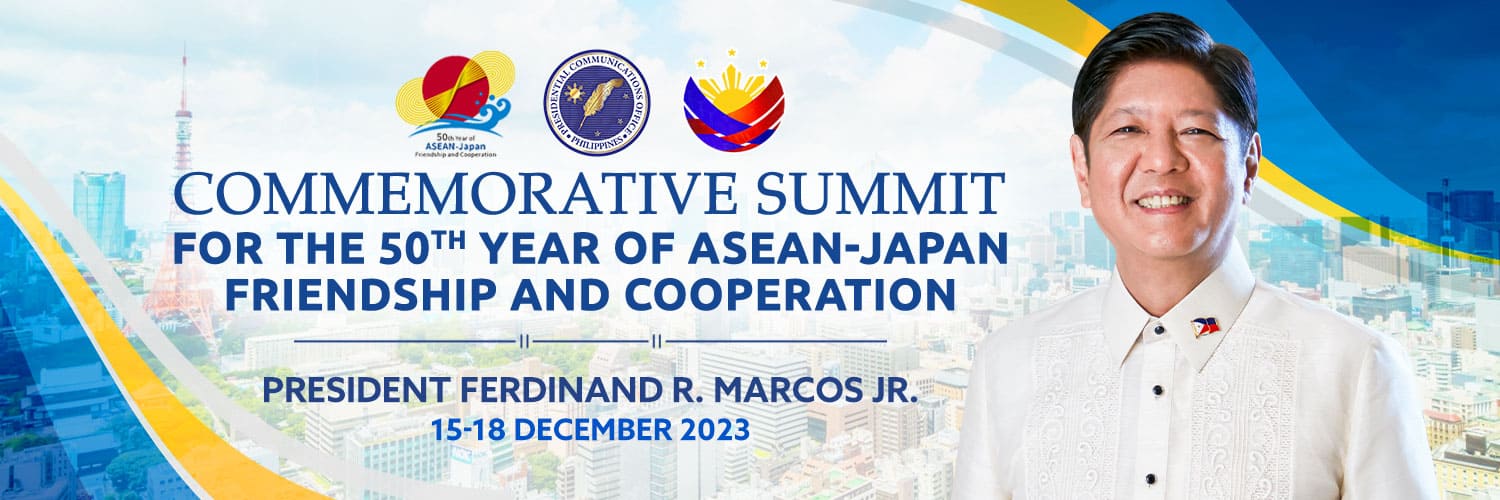
Transnational crimes and security issues will be part of the ASEAN-Japan Commemorative Summit as President Ferdinand R. Marcos Jr. participates in the regional gathering of world leaders in Tokyo this weekend, a foreign affairs official said on Monday.
President Marcos will leave for Japan this week for the Summit, marking the 50th anniversary of ASEAN-Japan Relations under the theme is “Golden Friendship, Golden Opportunities.”
In the pre-departure briefing in Malacanang, Foreign Affairs Undersecretary Daniel Espiritu said the issues of transnational crime and counter terrorism have always been part of the ASEAN agenda, not only with dealing with Japan but with almost all of the bloc’s major partners.
Those issues have been a close standing affair especially since the September 11 terrorist attack in the US, Espiritu stressed, noting the security mechanism has already been in operation since then.
“So, as for this intensification of that, we have probably, yes. But, we leave that doon sa—because this is a matter that will be handled even in more detail by the expert on this by the relative, what we call the Sectoral Bodies of ASEAN,” Espiritu said.
“Ngayon may mga bodies tayo on counter terrorism and then it will also definitely be in the Joint Vision Statement,” he said.
Asked to describe the ASEAN-Japan relationship, as well as the Philippine-Japan cooperation, Espiritu said the relations between ASEAN and Japan is one of the most dynamic, involving political, diplomatic, and security areas.
“It’s a supporter of the ASEAN outlook on the Indo-Pacific, which is the ASEAN version of the Indo-Pacific concept, focusing not only on security but more on economics and climate action,” he explained.
“And then, it also very much embedded in the economic framework of ASEAN, because we have this ASEAN Japan Comprehensive Economic Partnership. And we also have an FTA [free trade agreement] an ASEAN FTA with the Japan,” he also noted.
Espiritu also emphasized that the relationship between the Philippines and Japan is becoming more intensified in last few years because of common security and economic concerns.
“At the same time, we were able to maintain the high level of people to people and social cultural exchange between us,” Espiritu said. PND

